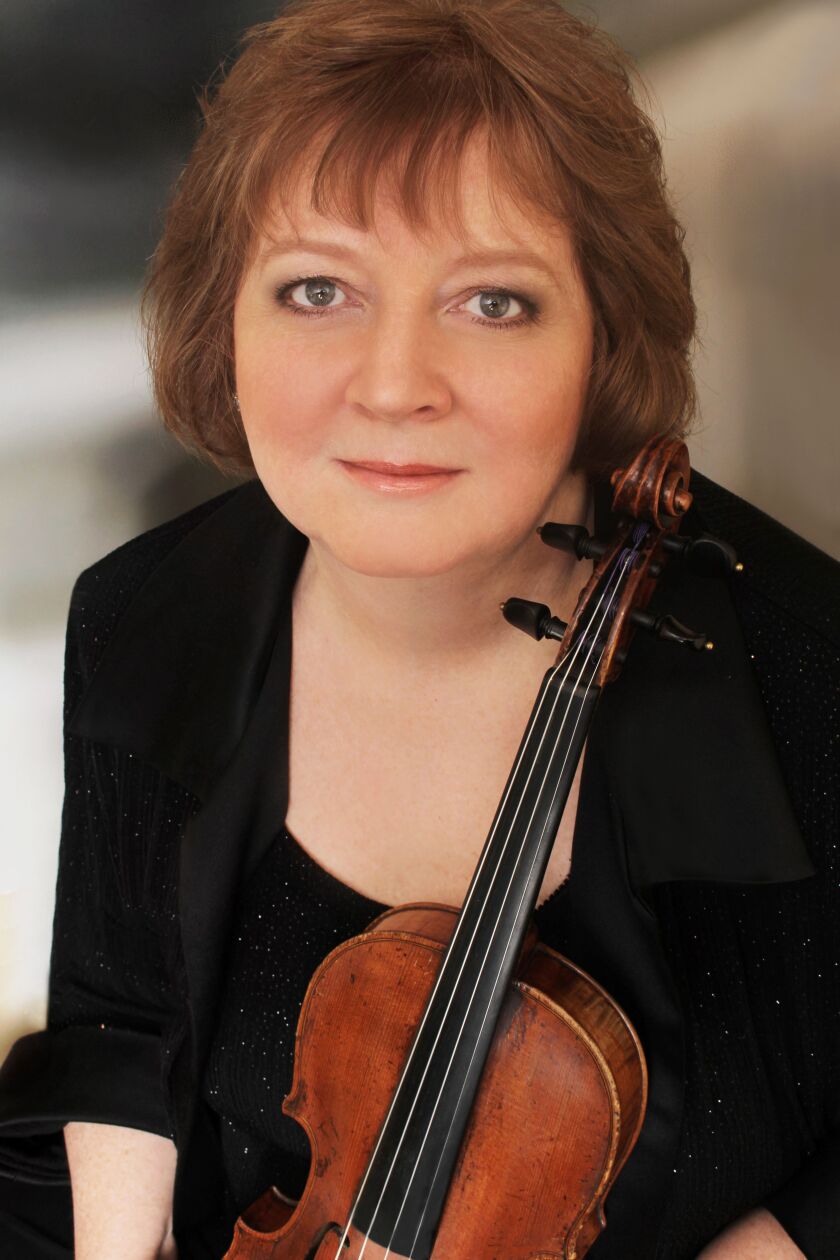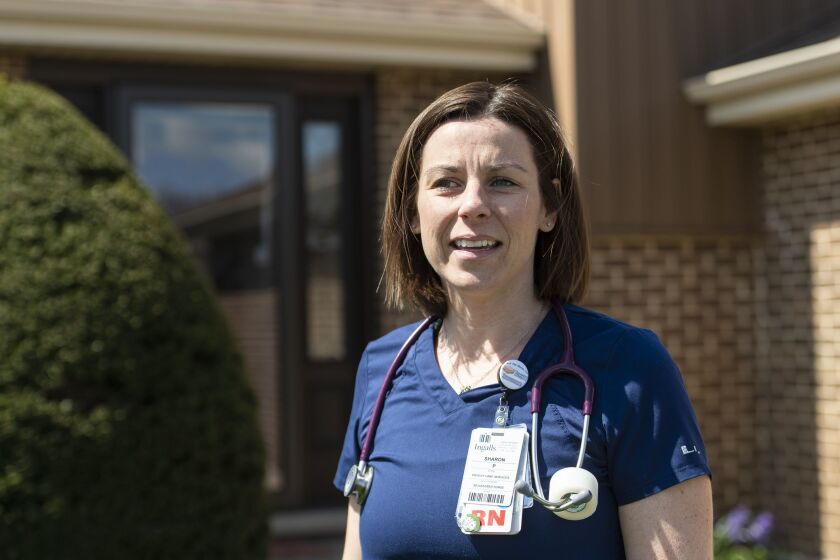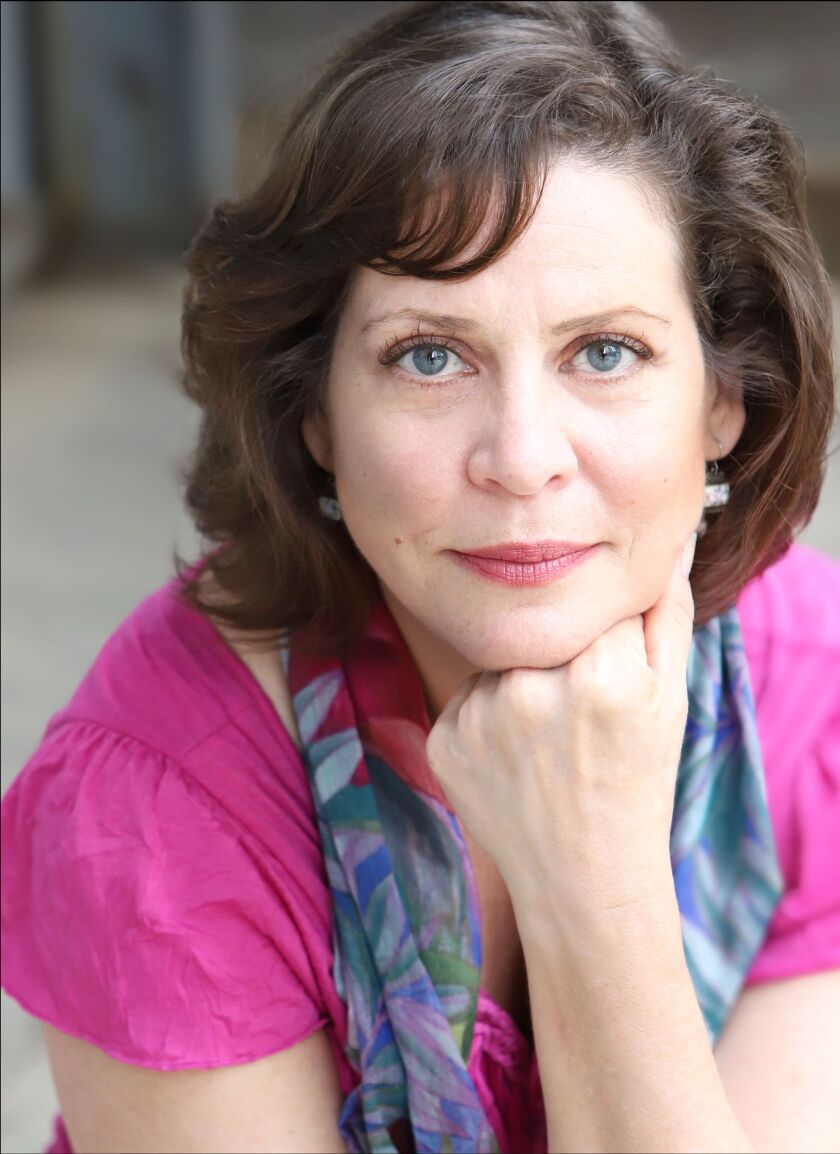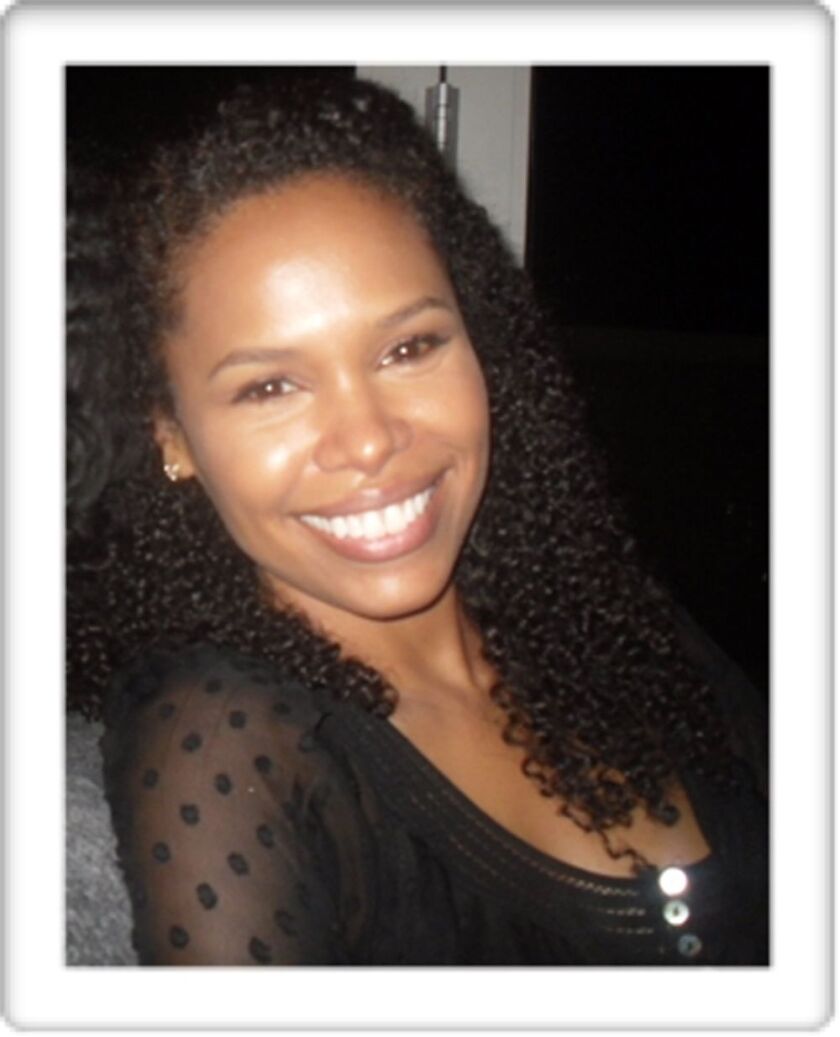A year ago Sunday, the city’s top public health official announced the first case of the novel coronavirus in Illinois — a Chicago woman who’d recently returned from a trip to Wuhan, China.
In a calm, cheerful voice, Dr. Allison Arwady said it was an isolated case and that the risk to the public “remains low at this time.”
That last part might have given some pause. But even in early March, people were being told there was no need to wear masks or stop enjoying life as we always had.
A year later, almost nothing is as it was before. Yet people have found ways to cope, to survive, even thrive.
Violinist Melanie Kupchynsky was on tour in Italy with the Chicago Symphony Orchestra last January when she saw the news about the spreading virus in China — where she’d been with the CSO a year earlier.
“Little did we know at that moment it was unfolding in Italy right around us,” says Kupchynsky, who has been with the orchestra since 1989 and lives in River Forest. “We were thinking we had dodged a bullet.”
In February, the CSO performed in Florida. Then, mid-March, Kupchynsky was back home and about to head for Orchestra Hall to perform Maurice Ravel’s Bolero.
“We had a rehearsal,” she says. “We were all expecting to come back and play that night. Many of us had left our instruments and our concert clothing in our lockers downtown.”
She got a call from the personnel office telling her not to come downtown. The concert had been canceled.
“I had felt like this was going to happen, but, of course, it still feels like living inside a sci-fi story — something impossible to believe could come true,” she says.
The shutdown left Kupchynsky and her husband Ed Harrison, the timpanist for Lyric Opera of Chicago, in a state of “shock and limbo.”
She had to keep practicing, of course. She worried less about her career than about her three grownup children, one who is getting his Ph.D. in molecular microbiology.
“They actually have COVID samples in his lab,” she says.
In the warmer months, she would cart her sheet music and violin outside onto her back deck.
“My neighbors seemed not to mind,” she says. “They seemed to be OK with hearing the same thing over and over again.”
The CSO put on some socially distanced outdoor concerts at retirement homes.
“Everyone was so starved for this,” Kupchynsky says. “We felt so lucky to be part of it.”
Why not, she thought, give a concert from her own house? So Kupchynsky called a handful of musician friends, including another violinist from the CSO, and invited them to perform a porch concert in August. She scribbled the details on a white board and propped it up in her driveway. And people showed up to listen.
“There were people with their dogs, with their bicycles, people with kids,” Kupchynsky says.
The mostly masked audience — blankets and folding chairs — enjoyed a selection of Vivaldi, Bach and Gershwin pieces, among others.
The concert, which featured her husband on the vibraphone, was a reminder of how much Kupchynsky has missed audiences.
It also brought a fear.
“How long is it going to be before people feel safe coming to concerts?” she wondered. “Even if we feel safe performing with our masks and our distance, how will people feel taking a risk to come out and do something fun?”
Still, Kupchynsky says she has found reason for optimism.
“Especially with the inauguration [of President Joe Biden], I’m really full of hope,” she says.
After month upon month of treating coronavirus patients in grueling 12-hour shifts, Shari Para, a nurse at Ingalls Memorial Hospital in Harvey, says it finally got to be too much.
Her breaking point came just before Christmas. Para, 38, a married mother of two small children, is the kind of nurse who takes the time to get to know the little things about her patients. How long they’ve been married. Their kids’ names. She’ll hold patients’ hands and pray with them if that’s what they want.
“Because you never know,” she says. “It’s nice to know that they know that you care about them.”
Late last year, she’d been caring for an 88-year-old man who was on “high-flow” oxygen but had been stable for 10 days.
“He was in good spirits,” Para says. “He spoke to his family every day.”
The man had been married for more than 60 years but spoke about his wife as if they were newlyweds.
“When we would go in to his room, he’d say, ‘I’ve got to call my bride,’ ” Para says.
Despite her efforts, the man died in mid-December.
“You stay strong for your patients when you are there, and that’s easy to do because that is what you signed up for,” she says. “I’m a nurse. I take care of people. But when you watch so many people suffer and pass, that was just it for me. I couldn’t take it any more.”
Para took a week off around Christmas to spend uninterrupted time with her husband and children, ages 3 and 4.
“Everyone still likes bubbles and trains and princesses,” she says of her kids.
Even having taken that time off, Para says that, for the first time in her career, she is considering getting counseling to help her through this rough patch.
Ingalls has seen a recent drop in coronavirus patients, enough that the COVID-19 unit has been closed, and patients are now scattered in different parts of the hospital. But if things get worse and it’s reopened, Para says that, even with the trauma of the past year and the toll it has taken on her, she wouldn’t hesitate to go back there.
“A year into the pandemic, I still absolutely love what I do,” she says. “I wake up every day, and I don’t dread going into work.”
Some people might think nurses develop a thick skin to steel themselves for the times their patients don’t recover. Para says she never wants to be that way.
“I’m a pretty tough person as it is,” she says. “I like getting to know my patients. I don’t want to have that skin. I like knowing who these people are I’m taking care of. They have stories.”
In the summer of 2006, Adrianne Cury was riding her bicycle on the West Side when a distracted driver ran into her in a crosswalk. At the time, Cury — a Chicago-area actor, director and theater coach — was performing in a play at Oak Park Festival Theatre.
“They had to cancel the show that night because no one knew where I was,” says Cury, who lives in Oak Park.
She was in the hospital. The impact had knocked her unconscious. She didn’t walk again for 20 months and endured 17 surgeries.
To help pay the medical bills, she took steady work teaching aspiring actors at Acting Studio Chicago in River North. She finally began auditioning and acting again about three years ago, appearing with Chicago Shakespeare Project and Cardinal Stage in Indiana.
“I was very happy to be back doing it,” she says. “Like any actor, I was disappointed when I would come close so many times and not get jobs.”
Then came the coronavirus. Cury had just cast a show at Moraine Valley Community College in Palos Hills. It was immediately canceled. She’d just begun teaching a new session at the acting studio. It, too, was shut down.
“I was fully aware it’s just theater, I’m not dying, I’m well, and my husband is well,” she says.
At the same time, she and her husband — who also works in theater — need to have money coming in.
Thankfully, she says, classes started online at the acting studio about three weeks after the March lockdown. At first, that was a hard adjustment.
“I was borderline miserable because I felt I couldn’t do it,” says Cury, who struggled to deal with students in poor lighting or who, for whatever reason, didn’t feel comfortable throwing themselves into a role while sitting in front of a computer screen at home.
She says she’s slowly adjusted out of necessity. She’s become accustomed to scene-stealing cats slinking across the computer screen and spouses walking through with a plate of pasta.
“It hasn’t happened to me, but I know other teachers have had students taking the class from inside their cars,” she says. “You kind of go, ‘I need you to find a better place than that and certainly not to be driving.’ You feel badly that perhaps that’s the student’s only option.”
She wonders how playwrights will draw inspiration from what they’ve endured over the last year.
“Will there be a glut of both good and bad new works about this time?” she says. “I hope on my optimistic side that we will have some really interesting new work.”
One thing isn’t likely to change about her industry, Cury says.
“The business has always been difficult,” she says, “because there are more artists than jobs — always.”
***
At the start of the pandemic, after the initial fear of the unknown subsided, Rachelle enjoyed flying in empty airplanes or with perhaps just a half-dozen people onboard.
“It was kind of nice because you didn’t have to deal with angry passengers, and we didn’t have any service because airlines didn’t want us having contact with passengers,” says Rachelle, a Chicago-based flight attendant in her 20s who didn’t want her full name used because she didn’t have her airline’s permission for an interview.
She’s a part-time bartender, too. So she’s not easily rattled. She says she kind of liked having to wear a face covering.
“Thank goodness for these masks because they can hide our facial expressions, and we don’t have to smile,” she says, speaking during a layover in Oregon.
Planes gradually have started to fill up again, she says, especially when the final destination is somewhere with less-stringent COVID-19 rules, like Mexico.
She’s not freaked out at the idea that some people might be traveling with the coronavirus, even though they should know better. But it bothers her when a passenger pulls a mask down or isn’t wearing it properly.
“This job is like being an adult babysitter,” she says.
Back in early March, Damaris Walker made a Costco run and filled up the trunk of her SUV with bulk packages of canned beans and paper towels, among other things.
Her trunk also was filled with candles and little clay pots — things she thought she might need if the power went out.
“I was watching some information coming out of China, and over there, they were saying that water was kind of on and off, and the power was on and off,” says Walker, who lives in Hyde Park.
Almost 11 months later, she laughs a little about that part of her preparation.
“Our water has been fine,” she says.
But she had no regrets about stocking up on food and other essentials.
“I actually think it shouldn’t have taken the threat of a global pandemic for me to be prepared with enough food to feed my family for a period of time,” says Walker, who has a 7-year-old boy. “I feel more comfortable having two to three months of food on hand.”
She looks at it as being a “good parent,” though she says she’s finally running a little low on some items.
“I bought so much food, and I had a full freezer, and just the other day I realized I was using my last package of sausages, and we’ve run out of chicken,” Walker says.
No shortage of beans, though.
“The beans are still there in case of emergency,” she says.









